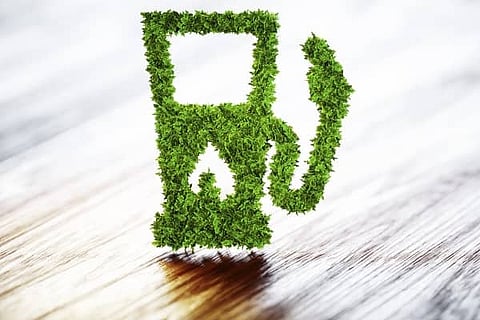
- News Updates
- PSU Watch
- Defence News
- Policy Watch
- हिन्दी न्यूज़
- Jobs Watch
- States News
- Event News

New Delhi: Green hydrogen will be crucial for India's economic development, energy security and achieving decarbonisation of harder to abate sectors, said the Economic Survey 2022-23. The survey tabled in the Parliament on Tuesday stated that from the emerging global momentum on green hydrogen, India can situate this decarbonisation opportunity not just within the context of a low-carbon economy but also as an enabler of energy security and economic development for the nation.
Green hydrogen will be crucial for achieving decarbonisation of harder-to-abate sectors such as fertilisers, refining, methanol, maritime shipping, iron & steel and long-haul transport, the survey said. Further, the survey said that green hydrogen is also an important element of India's Long Term Low Emissions Development Strategy (LT-LEDS).
With a vision to make India an energy-independent nation, and to de-carbonise critical sectors, the government approved the National Green Hydrogen Mission on January 4, 2023 with an initial outlay of Rs 19,744 crore. The mission will facilitate demand creation, production, utilisation and export of green hydrogen and mobilisation of over rupees eight lakh crore of investments by 2030.
As per the survey, the energy transition plan is complemented by numerous policies intended to improve the ecosystem to deploy promising technological innovations like green hydrogen. The National Hydrogen Mission and Green Hydrogen Policy have been introduced to enable India to be energy independent by 2047.
In June 2022, a report by NITI Aayog showed that in the case of India, renewable tariffs have fallen in recent years, and electrolyser costs are expected to fall in the future. A recent report by the International Renewable Energy Agency (2020) suggested that the cost of electrolysers is crucial for making green hydrogen economically viable.
NITI Aayog's report estimates that the cumulative value of the green hydrogen market in India will be USD eight billion by 2030 and USD 340 billion by 2050. The electrolyser market will be approximately USD five billion by 2030 and USD 31 billion by 2050. "The country has consistently modified/amended regulatory standards and adopted policy level interventions to support the development and adoption of new technology," said the survey.
India's progress on energy transition may be understood from the fact that it has enhanced its non-fossil fuel-based installed capacity target to 50 percent in its updated NDC as the target of 40 percent of the first NDC was achieved well in advance.
(PSU Watch– India's Business News centre that places the spotlight on PSUs, Bureaucracy, Defence and Public Policy is now on Google News. Click here to follow. Also, join PSU Watch Channel in your Telegram. You may also follow us on Twitter here and stay updated.)
